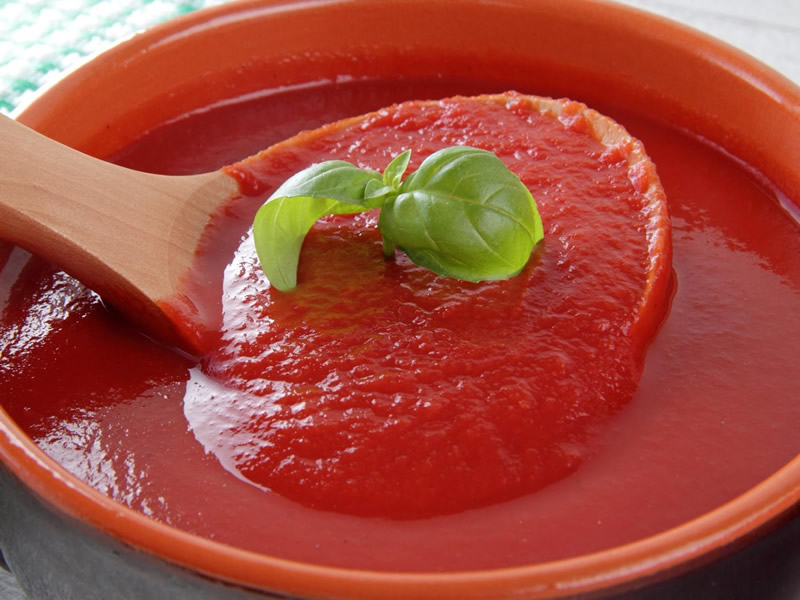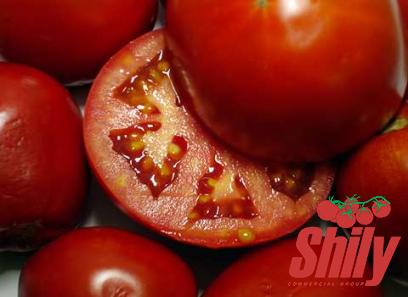Exploring Sugar-Free and Artificial Sweetener-Free Ketchup: A Healthier Alternative
Introduction:
Ketchup, which was originally made using sugar as a key ingredient for its distinctive sweet taste, has evolved over the years to cater to various dietary preferences. In recent times, the demand for sugar-free and artificial sweetener-free ketchup has been on the rise, fueled by growing health concerns and an increasing focus on natural food choices. This article delves into the world of sugar-free and artificial sweetener-free ketchup, exploring its health benefits, ingredients, and alternatives available in the market.
1. The Downsides of Sugar and Artificial Sweeteners in Ketchup:
i. Health Concerns: Excessive sugar consumption is linked to various health problems such as obesity, diabetes, heart diseases, and tooth decay. Similarly, artificial sweeteners have drawn criticism due to their potential side effects and controversial long-term health implications.
ii. Taste and Texture: Many individuals find the sugary flavor of traditional ketchup overpowering, while some artificial sweeteners may leave an unpleasant aftertaste.
2. Healthier Alternatives:
i. Natural Sweeteners: Companies are now opting for natural sweeteners like honey, maple syrup, agave nectar, or fruit concentrates as alternatives to refined sugar. These natural sweeteners provide a milder sweetness and are often accompanied by additional nutrients.
ii. Stevia: Derived from the leaves of the stevia plant, stevia has gained popularity as a zero-calorie, natural sweetener. It offers a sweet taste without the potential side effects associated with artificial sweeteners.
iii. Monk Fruit Extract: Another natural sweetener gaining attention is monk fruit extract. Known for its intense sweetness, it is a suitable sugar substitute for ketchup, providing a lower calorie alternative without compromising flavor.
iv. Clean-Label Ketchup: Some brands are focusing on “clean-label” ketchup, which uses minimal ingredients, often omitting sugar and artificial sweeteners altogether. These ketchups rely on the natural sweetness of tomatoes and other naturally occurring flavors.

3. Homemade Sugar-Free Ketchup Recipes:
Preparing ketchup at home allows complete control over the ingredients used, making it easier to avoid sugar and artificial sweeteners. This section provides a step-by-step guide to make delicious and healthy sugar-free ketchup using natural sweeteners and alternative flavorings such as vinegar, spices, and herbs.
4. Commercial Sugar-Free and Artificial Sweetener-Free Ketchup Brands:
i. Heinz No Sugar Added Ketchup: A popular brand offering a sugar-free version of their classic ketchup. It replaces sugar with sucralose, a non-caloric artificial sweetener, which may not suit everyone’s preferences.
ii. Primal Kitchen Unsweetened Organic Ketchup: This brand focuses on utilizing natural sweeteners like balsamic vinegar and organic spices to enhance the flavor without the need for sugars or artificial additives.
iii. Sir Kensington’s No Sugar Added Ketchup: Known for its high-quality ingredients, this sugar-free ketchup relies on natural tomato sweetness and spices to deliver a delectable taste.
iv. Elevation Organic Ketchup: This brand uses organic tomato concentrate, apple cider vinegar, and seasonings to create a sugar-free and artificial sweetener-free ketchup option.
5. Pros and Cons of Sugar-Free and Artificial Sweetener-Free Ketchup:
i. Pros:
– Reduced sugar content supports healthier eating habits
– Natural sweeteners provide added nutritional value
– Alternative sweeteners can cater to individuals with dietary restrictions

– Taste profiles can be adapted to personal preferences
ii. Cons:
– Some people may find the taste of sugar-free ketchup less satisfying compared to traditional options
– Natural sweeteners can still contribute to calorie intake in some cases
– Availability of these ketchup varieties may be limited in certain regions
Conclusion:
The surge in demand for sugar-free and artificial sweetener-free ketchup reflects growing consumer concerns about health and wellness. With numerous options available, individuals can now enjoy the familiar flavor of ketchup without compromising their dietary goals. Whether homemade or store-bought, these healthier alternatives provide a delicious experience while avoiding the potential negative effects of excess sugar and artificial sweeteners.I. The Growing Market for Sugar-Free and Artificial Sweetener-Free Ketchup
The market for sugar-free and artificial sweetener-free ketchup has expanded significantly in recent years, driven by the increasing consumer focus on health-conscious choices and rising awareness about the detrimental effects of excessive sugar consumption. As more individuals seek healthier alternatives to their favorite condiments, ketchup manufacturers have responded by formulating recipes that provide similar taste and texture without compromising on flavor. This shift has created opportunities for new players in the market and has also prompted established brands to introduce healthier variations of their ketchup offerings.
II. Benefits of Going Sugar-Free and Artificial Sweetener-Free
By eliminating or reducing sugar and artificial sweeteners in ketchup, consumers can enjoy several health benefits. Firstly, it helps in managing blood sugar levels and reducing the risk of diseases such as diabetes and obesity. Additionally, avoiding artificial sweeteners, which have been linked to potential side effects, allows individuals to choose a more natural and clean-label option. For those seeking to reduce their overall calorie intake or limit their consumption of artificial additives, sugar-free and artificial sweetener-free ketchup provides a viable alternative without sacrificing taste.
III. Natural Sweeteners as a Healthier Option
One approach to creating sugar-free ketchup is to replace refined sugar with natural sweeteners. Honey, maple syrup, agave nectar, and fruit concentrates are commonly used alternatives that not only provide sweetness but also offer additional nutrients and flavors. These natural sweeteners bring a different taste profile to ketchup compared to traditional versions, with a milder sweetness and unique undertones. Consumers who prefer a more natural and less processed option often find these alternatives appealing.

IV. The Rise of Stevia as a Natural Sweetener in Ketchup
Stevia, a zero-calorie natural sweetener derived from the leaves of the stevia plant, has gained popularity as a healthier alternative to sugar and artificial sweeteners. Known for its intense sweetness, stevia has a minimal impact on blood sugar levels, making it suitable for individuals with diabetes or those following a low-sugar diet. Ketchup brands have incorporated stevia into their recipes to create sugar-free variations that not only provide a sweet taste but also cater to health-conscious consumers.
V. Monk Fruit Extract: An Emerging Sweetener in Sugar-Free Ketchup
Another natural sweetener making its way into the sugar-free ketchup market is monk fruit extract. This natural sweetener is derived from the monk fruit, a small melon-like fruit native to Southeast Asia. Monk fruit extract is renowned for its intense sweetness and contains zero calories, making it an attractive option for individuals looking to reduce their sugar intake. While still relatively new, ketchup brands are exploring the use of monk fruit extract as a natural alternative to sugar and artificial sweeteners.
VI. Clean-Label Ketchup: Minimizing Ingredients for a Healthier Choice
Clean-label ketchup has gained traction in the market as consumers increasingly seek products with simple and recognizable ingredients. These ketchups use minimal ingredients, often excluding sugar and artificial sweeteners altogether. Instead, they rely on the natural sweetness of tomatoes and other naturally occurring flavors to deliver a delectable taste. Clean-label ketchups emphasize transparency, focusing on wholesome ingredients that align with consumers’ desire for clean, natural, and unprocessed foods.
VII. Homemade Sugar-Free Ketchup: A Customizable Option
Preparing sugar-free ketchup at home allows complete control over the ingredients used, making it easier to avoid sugar and artificial sweeteners. By using natural sweeteners like honey, maple syrup, or fruit puree, and adding spices, herbs, and vinegar, individuals can tailor the flavor to their liking. Homemade sugar-free ketchup recipes abound, offering creative variations that cater to personal preferences and dietary restrictions, and provide a satisfying and nutritious alternative to store-bought options.
VIII. Notable Brands Offering Sugar-Free and Artificial Sweetener-Free Ketchup
Several well-known ketchup brands have recognized the demand for healthier alternatives, leading them to introduce sugar-free and artificial sweetener-free variations of their products. Heinz No Sugar Added Ketchup, for example, utilizes sucralose as a non-caloric artificial sweetener to maintain the flavor profile of their classic ketchup. Primal Kitchen Unsweetened Organic Ketchup takes a different approach, utilizing natural sweeteners like balsamic vinegar and organic spices to enhance the flavor without relying on sugars or artificial additives. Sir Kensington’s No Sugar Added Ketchup prioritizes high-quality ingredients, relying on the natural sweetness of tomatoes and spices to deliver a delightful taste. Elevation Organic Ketchup stands out for its use of organic tomato concentrate, apple cider vinegar, and seasonings to create a sugar-free and artificial sweetener-free ketchup option.
IX. Pros and Cons of Sugar-Free and Artificial Sweetener-Free Ketchup
While sugar-free and artificial sweetener-free ketchup offers numerous advantages, it is important to acknowledge potential drawbacks as well. On the positive side, these healthier options promote reduced sugar consumption, provide added nutritional value through natural sweeteners, and cater to individuals with specific dietary restrictions. However, some people may find the taste of sugar-free ketchup less satisfying than traditional options, and natural sweeteners can still contribute to calorie intake to some extent. Availability may also be a challenge, as these ketchup varieties may be more limited in certain regions.

Conclusion:
The increasing popularity of sugar-free and artificial sweetener-free ketchup reflects consumers’ growing desire for healthier food options while still enjoying their favorite condiments. By exploring natural sweeteners, such as honey, maple syrup, stevia, and monk fruit extract, or opting for clean-label ketchup, individuals can enjoy the familiar taste of ketchup without the drawbacks of excess sugar or artificial additives. Whether homemade or store-bought, these healthier alternatives provide a delicious and nutritious experience, catering to consumers’ evolving preferences for clean, natural, and guilt-free condiments.









